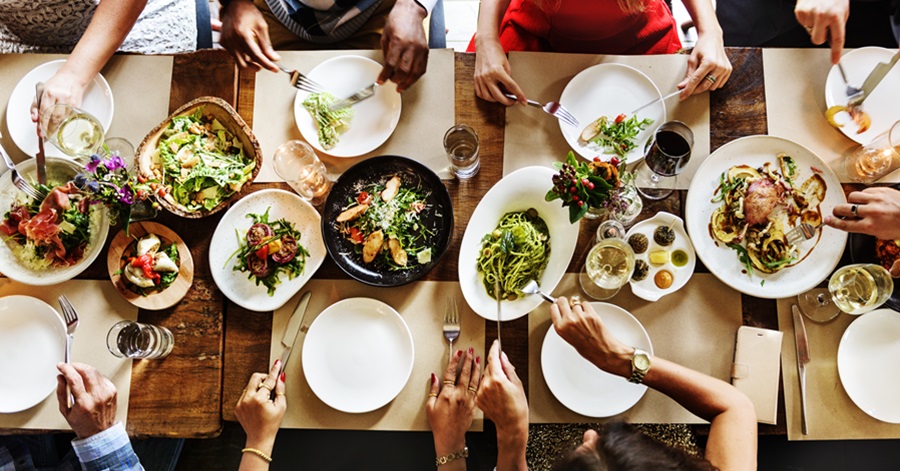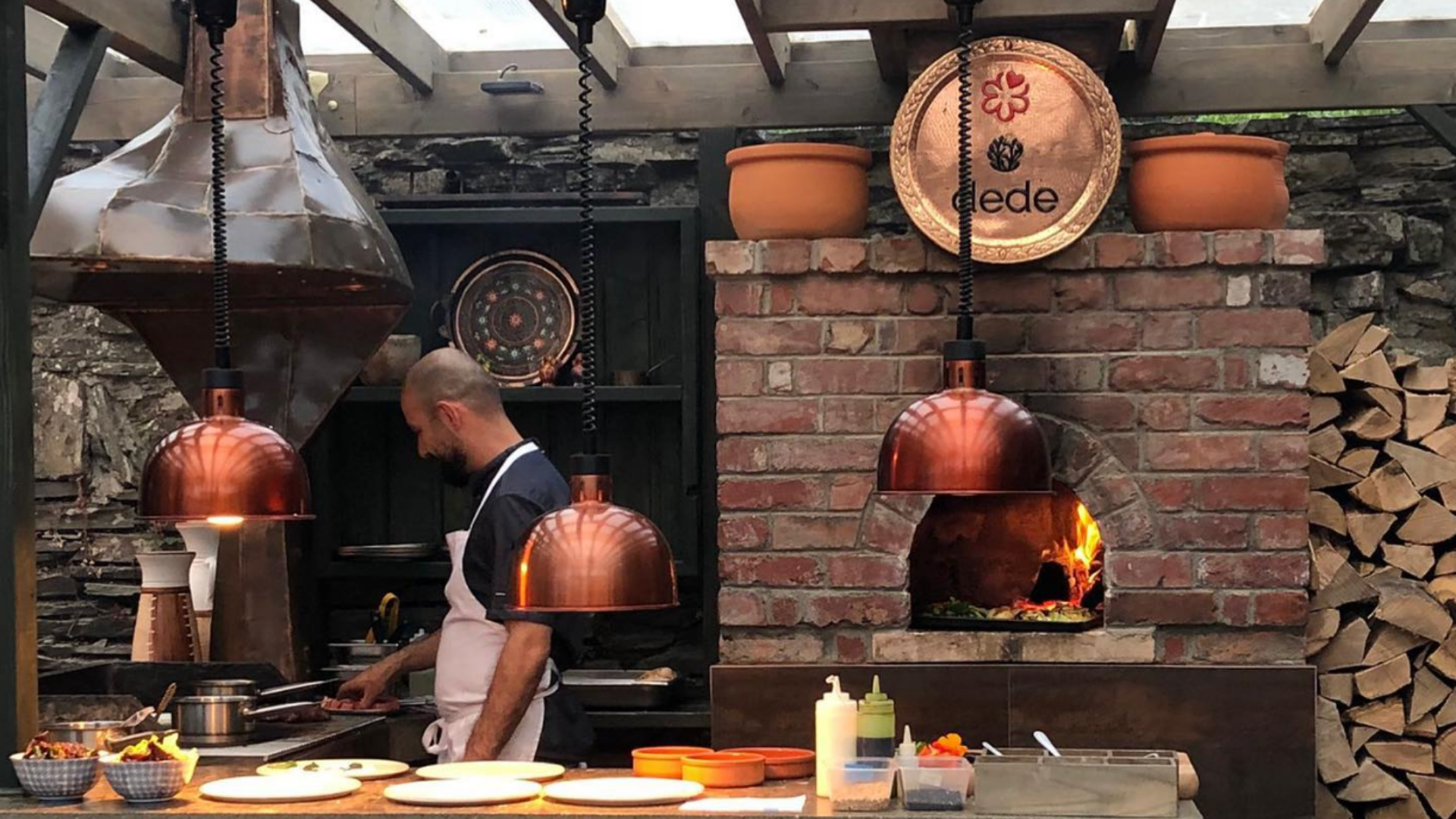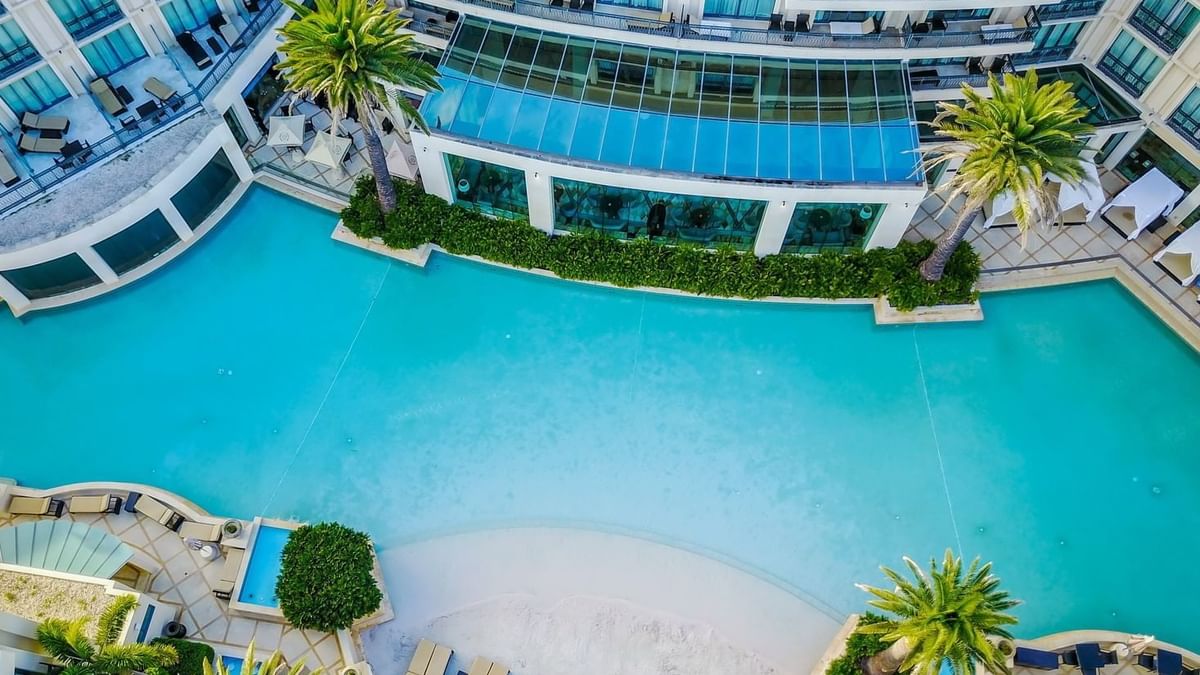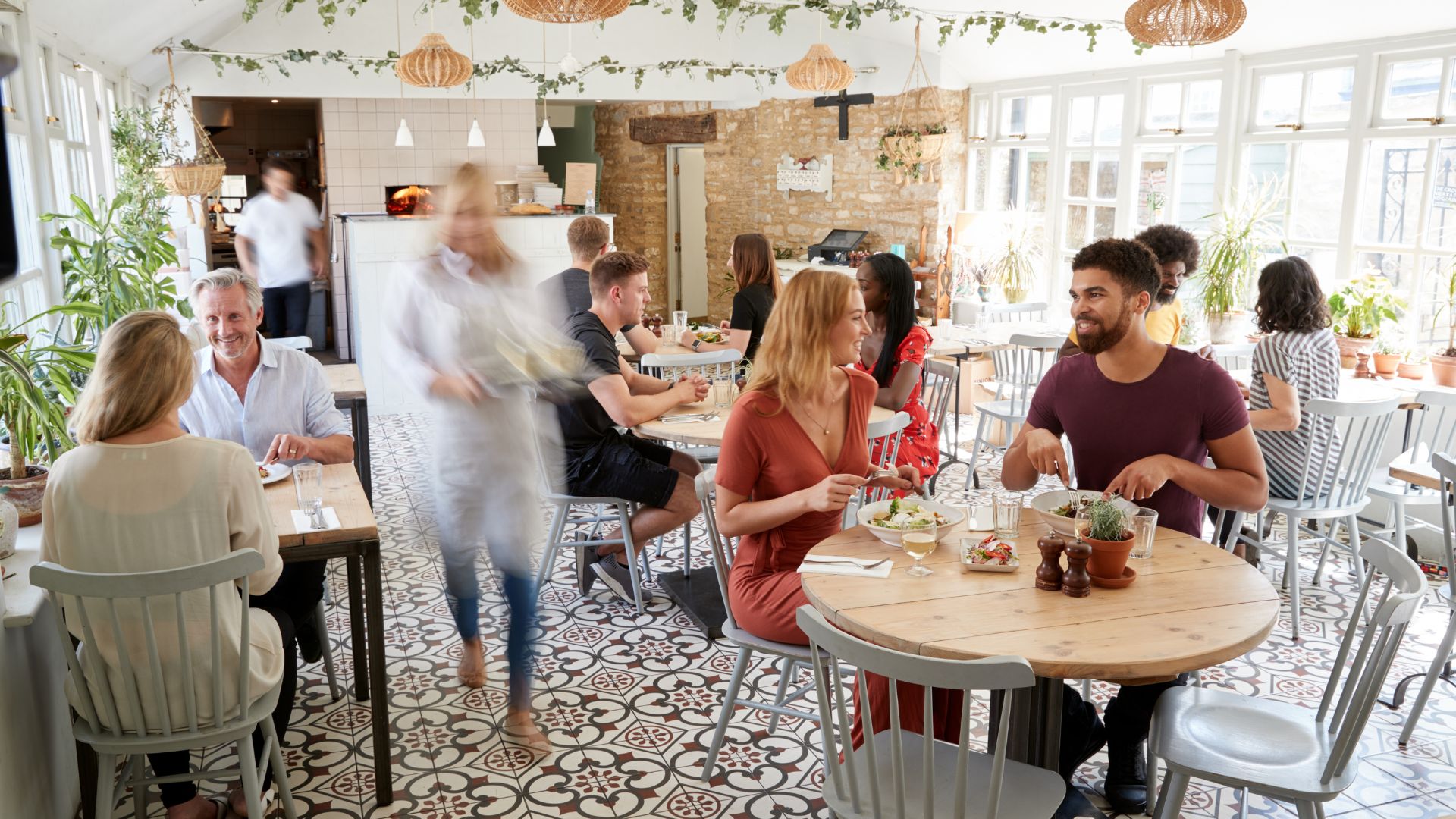A restaurant booking system allows venues to accept online and in-person diner reservations and arrange table plans based on information such as the number of guests, booking date and time, as well as unique customer preferences and dining history at your venue.
A booking system can also pass on crucial customer information a restaurant requires such as dietary restrictions or whether children are included.
Bookings are made in-person or online at most restaurants, cafes, and diners. Some booking systems also offer features like group deposits, pre-orders, phone bookings, and events management. Walk-ins may be a natural source of customers and revenue, but a restaurant reservation system can maximise these aspects and secure more guests.
Any type or size of hospitality business can benefit from a booking system. ResDiary offers the right kind of software to get your venue packed tight with guests and events. So read on to learn more about restaurant booking systems and what your business can gain from using one.
What is the Purpose of a Restaurant Booking System?
For those running a restaurant business, a booking system is necessary in these modern times. Services are now expected to be both online and express in delivery. The previous years of relying on pen and paper meant more time and effort spent on managing restaurant bookings. This has prevented staff from fulfilling their existing roles in serving current customers.
Nowadays, a restaurant reservation system streamlines the management of reservations. Customers are no longer restricted to reserving a table during restaurant operating hours. Nor are they left waiting until a staff member is free to pick up a phone. The accessibility of reservation software means that customers can make a booking whenever it suits them. This secures more guests and offers them more comprehensive support. After all, people are more likely to dine at a venue when they have the security of reserved tables. The ease of booking at their leisure is also appealing.
Booking systems also come with features that offer the restaurants themselves several benefits. Namely that:
- Booking reminders can be sent to guests to reduce the rate of no-shows, securing revenue
- Table planning can be improved, ensuring there is enough space for all guests
- Customers can make the bookings themselves. This frees staff to do their main role of serving customers
- Phone lines can be freed for more pressing matters
- Pre-orders, deposits, and pre-payments can be more easily collected
Thus, the purpose of a restaurant booking system is multi-faceted for both customers and businesses alike. Making it beneficial to use over traditional pen and paper in today's technological age.
Who Needs a Restaurant Booking System?
Any restaurant, diner, bar, or cafe can benefit from a reservation system. Particularly one that provides a range of features that support the users. To remain relevant and accessible to the modern hospitality market, venues need a restaurant booking system. This will ensure no reservation opportunities are missed and no mistakes are made.
Finding the right reservation system may take some time, but the benefits are worthy in the long term.
1. Improvement in Staff and Table Management
When restaurant reservations are efficiently managed, the other facets of a venue also show improvement in efficiency. This is because a reservation system provides an overview of a day's number of expected guests. In turn, this allows for the appropriate allocation of tables, staff numbers, and resources.
Without a booking system, there is a higher chance of overstaffing or understaffing. There is also a chance of bookings clashing, leading to a lack of available tables. Customers will be secure in their bookings when there is software to schedule each day accordingly. Leading to a maximisation of how many can be seated each night, ensuring no one is left without.
2. Maximises Confirmed Guest Numbers and Revenue
Customers are more likely to make bookings when freed from business operating hours. Restaurant reservation systems are open 24/7, thus customers can make an online reservation at their own convenience. When restaurants are marketed with this convenience, customers are more likely to return for further visits. In turn, this increases the amount of future revenue for businesses.
Furthermore, booking systems are not restricted to in-person or website-based operations. Various booking options are available with an integrated system, such as Google and social media platforms. With the option of booking through various channels, control and revenue are likely to increase. More guests are also likely to visit and return as regulars.
3. Lowers No-Show Rates
It is not uncommon for those who have made reservations to not show up the night of their expected dining experience. This is known as a 'no-show' and can make many restaurants lose out on revenue as walk-ins may be turned away in expectation of a table being filled.
However, a solution is available with the implementation of a reservation system. Many systems allow restaurants to automatically send reminders to customers. These reminders can also be sent through multiple avenues such as email or mobile text. This prevents customers from forgetting their booking or missing a notification.
These reminders can also be sent with a chance to cancel the booking. This offers the chance to free up the table and allow walk-ins or another reservation to fill the gap. If you want to ensure that the booking is not cancelled, add a reservation deposit or a fee for no-shows. This has been proven to encourage customers to make their reservations on time. However, such a policy should always be highlighted ahead of time to ensure the customers are on the same page.
4. Data Insights
It is common for reservation systems to offer analytical and reporting features alongside their booking capabilities. This data provides valuable insights into key areas of business like:
- Peak hours of operation
- What menu items are most popular
- Customer preferences
- Customer demographics.
These insights can then be used to determine business-related decisions. Marketing strategies and menu adjustments are just two of the many decisions supported by the insights.
5. Supports Communication
Communication with a customer can be difficult to facilitate when they are not on-premises. Particularly when an establishment is still using the pen and paper reservation format. Fortunately, booking systems open up these channels. Customers can thus be kept updated about real-time changes through email and/or mobile messages.
This line of communication can also be tailored to collect feedback from customers. In turn, this feedback can be used for the improvement of products and services.
How Does a Restaurant Booking System Work?
Whether you are evolving from traditional pen and paper, or moving to a new system, setting up your reservation system can seem daunting without support. Fortunately, most systems follow similar structures in operations. This makes the change to a new platform efficient in both setup and adjustment. We will outline below what to expect from most systems and how each feature works to streamline the process for any restaurant owner.
Alternatively, you can take our restaurant management quiz. It matches your needs with the right reservation software solution.
Customer Operations
For the customer, most restaurant reservation systems follow a similar process to secure a table:
1. Access the booking portal
A venue is chosen from a restaurant's website, social media platform, or through Google. Once a location has been decided on, the booking portal will begin walking the customer through each step.
2. Select date, time, and additional details
The booking widget on a customer's chosen platform will guide them in selecting a date to dine. After which, they are also prompted with a list of available times on that date. When the amount of guests has been included, real-life tables are then blocked out for a select period.
The customer's name and contact details are needed to secure the booking. However, additional details about dietary requirements or the presence of young children can also be added.
This information is useful for a restaurant to have as it improves its ability to cater to customers' needs. With such catering, restaurants ensure everyone is having an enjoyable experience.
3. Confirmation
A booking is confirmed via email and/or mobile messaging once a reservation request has been submitted. This confirmation may also come with the option to cancel at any point, or reminders leading up to the date.
Restaurant Operations
1. Table Visualisation
Many integrated reservation software includes a visualisation feature. This resource shows the available space in a restaurant. It is often a drag-and-drop tool that allows you to replicate your table settings on a device. Through this tool, bookings can be organised and sufficient space is guaranteed at all times, regardless of the size of events.
2. Communications
All bookings can be directly managed through integrated reservation software. This keeps the entire restaurant staff informed on daily operation schedules. Necessary customer information can also be identified through this line of communication. This may be in the form of dietary restrictions or special requests.
3. Customer Service
Deliver extraordinary service through the support features of your reservation software. Offer pre-orders, upsell opportunities, and promotions at the start of their booking journey.
Why Choose ResDiary for Your Restaurant’s Booking System?
A restaurant reservation system is the future of the hospitality industry. This software supports customers and staff alike from the initial booking to the end of the dining experience. This software is the next step beyond pen and paper operations. So, get your best foot forward by choosing the ResDiary Restaurant Booking System.
Our reservation system allows you to manage your venue reservations in one place, at any time and at any location. The seamless integration of our software makes the transition into digital reservations effortless. The addition of our extensive training features also ensures all staff members are capable of using ResDiary.
With the addition of resources such as event management and marketing solutions, ResDiary supports any hospitality venue, regardless of size or cuisine.
Book a demo today to learn how much your restaurant can benefit from a restaurant reservation system and begin your journey into the modern age!
What Our Customers Have To Say
Disclaimer: This guide is general in nature and does not take into account your individual circumstances. Before acting on any information, you should consider whether this is right for your business.






.jpg)
